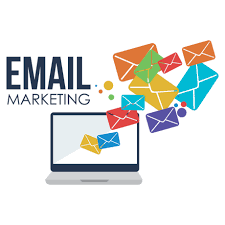Email Marketing vs. Social Media Marketing: Which is More Effective?








Email Marketing vs. Social Media Marketing: Which is More Effective?
Email Marketing vs. Social Media Marketing: Which is More Effective?
In the digital marketing landscape, businesses often find themselves choosing between various channels to reach their audience. Among these, email marketing and social media marketing stand out as two powerful tools. Each has its unique advantages and serves different purposes. This article explores the effectiveness of both channels, providing insights into when and how to use each effectively.
Understanding the Basics
Email Marketing
Email marketing involves sending targeted messages to a specific group of people via email. It’s a direct form of communication that allows businesses to build relationships with their audience and nurture leads. Email marketing is typically used for:
- Newsletters: Sharing company updates, news, or educational content.
- Promotional Campaigns: Announcing special offers, discounts, or new products.
- Personalized Communications: Tailoring messages based on user behavior and preferences.
Social Media Marketing
Social media marketing leverages platforms like Facebook, Instagram, Twitter, and LinkedIn to engage with a broader audience. This channel emphasizes building brand awareness and community engagement. It is commonly used for:
- Brand Awareness: Reaching a larger audience to promote the brand.
- Engagement: Interacting with followers through posts, comments, and direct messages.
- Content Sharing: Distributing visual and written content that can be easily shared.
Comparing Effectiveness
1. Audience Reach
- Email Marketing: Email marketing allows businesses to reach a targeted audience directly. It’s especially effective for nurturing leads and maintaining customer relationships. With a well-segmented email list, businesses can send personalized messages that resonate with specific audience segments.
- Social Media Marketing: Social media has a vast user base, making it easier to reach a larger audience quickly. Posts can go viral, amplifying your reach without additional costs. However, social media algorithms can limit visibility, making organic reach more challenging.
2. Engagement and Interaction
- Email Marketing: Email tends to have higher engagement rates when it comes to direct responses and actions taken (like clicks and conversions). It allows for personalized communication, which can foster stronger relationships with subscribers.
- Social Media Marketing: Social media thrives on interaction. Brands can engage with their audience in real-time through comments, shares, and likes. This platform encourages community building and can create a sense of loyalty among followers.
3. Cost-Effectiveness
- Email Marketing: Generally, email marketing is more cost-effective, especially for small businesses. With a robust email list, the costs of sending emails remain low relative to the potential return on investment (ROI) through conversions.
- Social Media Marketing: While creating social media accounts is free, paid advertising on these platforms can be costly. However, effective organic strategies can also yield significant results without the need for a large budget.
4. Conversion Rates
- Email Marketing: Email marketing typically boasts higher conversion rates. According to various studies, the average conversion rate for email is higher than social media, making it a crucial tool for lead generation and sales.
- Social Media Marketing: While social media can drive traffic to websites, conversion rates can be lower than email. Social media is often used for brand awareness and engagement rather than direct sales.
When to Use Each Channel
Email Marketing
- Nurturing Leads: Use email to guide prospects through the sales funnel, providing them with relevant content that addresses their needs.
- Announcing Promotions: Share special offers or discounts with your audience to drive sales.
- Building Loyalty: Regular newsletters and personalized content can help retain customers and build brand loyalty.
Social Media Marketing
- Brand Awareness: Utilize social media for campaigns aimed at increasing visibility and reaching new audiences.
- Engagement: Interact with your audience through comments, live videos, and Q&A sessions to foster a community.
- Content Distribution: Share valuable content, blog posts, and visuals that can be easily shared among users.
Conclusion
Both email marketing and social media marketing are effective in their own right, and the best approach often involves a combination of both. Email marketing is ideal for direct communication, nurturing leads, and driving conversions, while social media excels in building brand awareness, engagement, and community.
Ultimately, understanding your target audience, marketing goals, and available resources will help you decide when and how to use each channel effectively. By leveraging the strengths of both email and social media marketing, businesses can create a well-rounded marketing strategy that maximizes reach and impact.
Suggested Hashtags
- #EmailMarketing
- #SocialMediaMarketing
- #DigitalMarketing
- #MarketingStrategy
- #BrandEngagement

